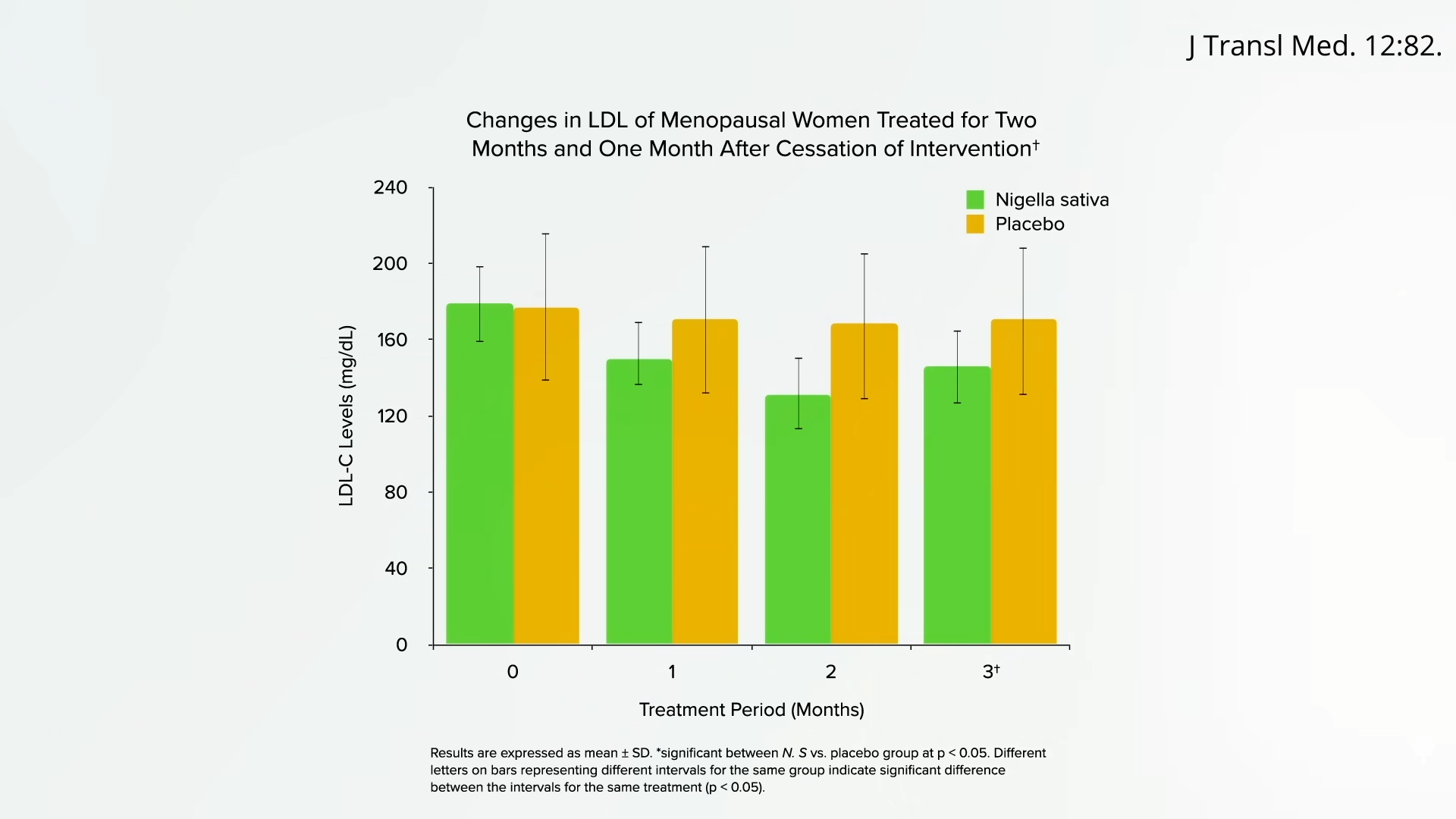Does Black Cumin Seed (Nigella Sativa) Help with Weight Loss?
For three cents a day, black cumin may improve our cholesterol and triglyceride levels, blood pressure, and blood sugar control, as well as accelerate the […]

For three cents a day, black cumin may improve our cholesterol and triglyceride levels, blood pressure, and blood sugar control, as well as accelerate the loss of body fat.
Black cumin, also known as Nigella sativa or simply “black seed,” is not related to cumin; it’s a member of the buttercup family rather than the carrot family. Black cumin, with its peppery flavor, is a spice commonly used in Indian and Middle Eastern cuisines, but it’s also been prized for its purported medicinal benefits. Described as “a miracle herb,” with mentions going back to the Old Testament, it was found cached in King Tut’s tomb, and it’s been reported that the “Islamic prophet Muhammad once stated that the black seed can heal every disease except death.” Only in the last 50 years or so has it been put to the test, though, culminating in more than a thousand papers published in the medical literature.
Typical doses used in studies are one or two grams a day, which is only about a quarter teaspoon. This enables researchers to perform randomized, double-blind, placebo-controlled trials by putting the whole-food spice powder into capsules rather than studying a component or extract.
A systematic review and meta-analysis of randomized, placebo-controlled trials found that daily black cumin consumption significantly improves cholesterol and triglycerides. Researchers also found that it not only improves blood pressure, but it also improves blood sugar control. Some of the results are quite extraordinary. For example, one study found that postmenopausal women randomized to a gram a day (less than a quarter teaspoon) of black cumin powder reduced their LDL cholesterol by 27 percent within two months, significantly better than placebo. Those are the kinds of results we’d expect from a statin drug, yet it was achieved with just a sprinkle’s worth of a simple spice. Black cumin may also help with menopausal symptoms.
Now, it doesn’t appear to cure anything—a month after stopping the spice, cholesterol levels began to creep back up, for instance, as you can see below and at 2:00 in my video Benefits of Black Cumin Seed (Nigella Sativa) for Weight Loss—but it does appear to be a cheap, safe, effective, and delicious (if you like spice) treatment for some of our deadliest risk factors. And its side effects include loss of appetite and weight loss!

The latest systematic review and meta-analysis of randomized controlled weight-loss trials found that about a quarter teaspoon of black cumin powder a day does appear to cause weight loss within a span of a few months. If it really can benefit so many facets of health, why don’t we hear more about it? Why wasn’t I taught about it in medical school? Maybe because there’s little profit motive. Black cumin is just a common, natural spice. The daily dose used in most of these studies would cost about three cents a day. Stockholders won’t be thrilled to sell something that can’t be patented and costs only three pennies a day. Black cumin has become a staple in my family’s daily diet. I keep a pepper mill filled with it right on the kitchen table and grind it onto foods just as I would black pepper—easy and delicious.

 Astrong
Astrong 































